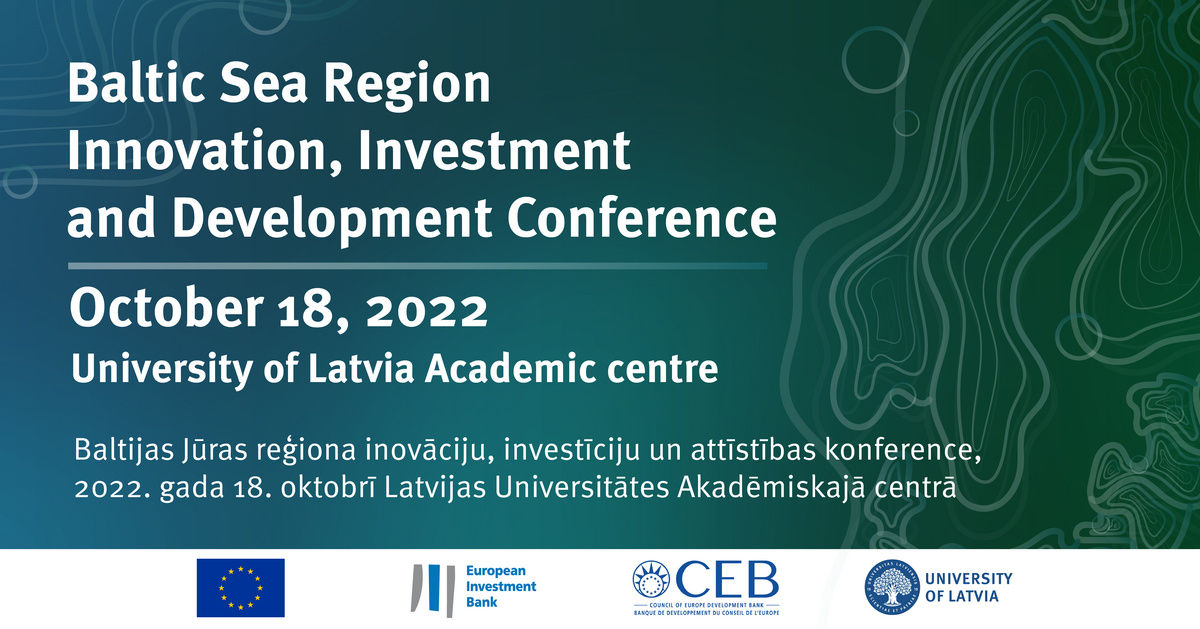
Both Europe as a whole and the Baltic Sea region are on the way to creating an ecologically sustainable economy. "In order to achieve sustainability goals, it is essential to strengthen cooperation between the region's largest public and private partners. The purpose of the conference is to bring together regional decision-makers, public development banks, public and private partners, as well as other interested parties, who would share their experience in the implementation of sustainable projects," said Gunta Rača, Director of the UL Academic Centre Development Programme.
The European Union is a leader in the transition to a more ecologically sustainable economy, while the Baltic Sea region, home to 85 million people - 19% of the entire population of the European Union - is a leader in the implementation of the macro-regional strategy. "In order to achieve the common sustainable development goals of both the EU and the region, cooperation between the region's partners must be strengthened and developed," emphasized Reinis Rotkalis, Director of Investment Attraction and Monitoring Projects of the UL Academic Centre.
Decision-makers, national development banks, development financing institutions, as well as non-governmental organizations and stakeholders will participate in the conference to discuss the main challenges and share experiences in the implementation of major development projects, taking into account the challenge for Europe to become the first climate-neutral continent in the world by 2050.
The participants will be addressed by UL rector Indriķis Muižnieks, Minister of Finance Jānis Reirs, Minister of Economics Ilze Indriksone, Head of the European Commission's Representation in Latvia Zane Petre, President of the Latvian Academy of Sciences Ivars Kalviņš, Vice President of the Academy Andrejs Ērglis, representative of the Council of Europe Development Bank Tomáš Boček, Marco Francini and Marina Ismaila from European Investment Bank, "Altum" representative Reinis Bērziņš and other leading professionals in the fields of innovation, finance and development.
International financial institutions (EIB and CEB) have been involved in the first stages of the implementation of the Academic Centre of the University of Latvia. "Assessing the UL's ability to implement such ambitious infrastructure objects, international players have shown interest in participating in the next stages of development as well," emphasized G. Rača.
Several public development banks will also participate in the BSR conference, where they will share their experience in attracting funding.
According to R. Rotkalis, the requirements of sustainability and energy efficiency are taken into account in the creation of the Academic Centre. Even before the current energy crisis, UL established the development principles of the university's green dimension, which envisaged building the new buildings as energy-efficient as possible and using the building and the territory of the Academic Centre to produce energy from renewable resources, such as solar and wind energy. As soon as the appropriate regulation is prepared in Latvia, UL will create a renewable energy community, combining energy production facilities both in the Academic Centre and in UL properties outside Riga in a common network.
